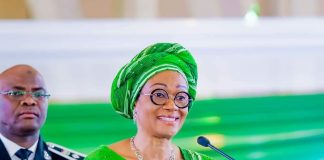The Nigerian equity market soared by 7.01 percent in the third quarter of 2017, a recent report released by FSDH Research revealed.
The report, which stated that this was the strongest Q3 performance in the last four years, also revealed that the stable macroeconomic environment was the major driver of the positive performance in the equity market and it expects this trend to continue in the last quarter of the year.
FSDH Research’s analysis of the historical trend of the equity market between 2012 and 2016 shows that the equity market rallied in December of each year.
FSDH Research’s historical analysis shows that there is a strong correlation between the movement in crude oil price and the Nigerian equity market.
The consensus on the short-term outlook for crude oil (Bonny Light) price is that it will remain above $50 per barrel.
The sustained high crude oil price coupled with improved oil production has led to a sustained accretion to the external reserves, which stood at $32.74 billion as at October 3, 2017.
The firm said it expects a continued boost to the external reserves in the short-to-medium term as oil price and production continue to strengthen because it is positive for the equity market.
Additionally, the introduction of the Investors’ and Exporters’ Foreign Exchange (FX) Window (I&E Window) has increased the supply of foreign exchange into the Nigerian economy and led to relative stability in the FX market. The I&E Window has also attracted more foreign investments into Nigeria. FSDH Research’s analysis of the capital importation data from the Central Bank of Nigeria (CBN) between January and July 2017 shows that there was a growth in capital importation in 2017, compared with 2016.
The total capital importation between January and July 2017 stood at $3.76 billion, representing a growth of 85.32 percent over $2.03 billion recorded in the corresponding period of 2016.
Other Investments (OI) – Loans attracted the highest capital of $1.69 billion between January and July 2017, closely followed by Foreign Portfolio Investment (FPI) – Equity of $1.15 billion, and Foreign Direct Investment (FDI) – Equity of $513.23 million.
FSDH Research said it expects continued foreign inflow into the equity market as the FX market remains stable.
It pointed out that this improved liquidity will boost the expected rally in the equity market. The drop in the yields on the fixed income securities should lead to portfolio realignments in favour of the equity market to take advantage of higher returns.
At the last auction on October 4, 2017, the yield on the 364-Day NTB stood at 18.65 percent, lower than the average yield of 22.71 percent recorded between January and September 2017.
Similarly, the yield on the 16.39 percent FGN January 2022 Bond stood at 15.83 percent as at the close of trading on October 4, 2017, lower than the average yield of 16.08 percent recorded between January and September 2017.
FSDH Research notes increased economic activities in most of the sectors of the Nigerian economy in September 2017.
A review of the latest Purchasing Managers’ Index (PMI) report that the CBN published for the month of September 2017 shows that economic activities in the manufacturing and non-manufacturing sectors continue to strengthen.
The Composite Manufacturing Index (CMI) expanded for the sixth consecutive month in 2017 to stand at 55.3 points in September 2017, from 53.6 points in August 2017.
The Composite Non-Manufacturing Index (CNMI) also expanded for the fifth consecutive month to 54.9 points in September 2017 from 54.1 points in August 2017.
The report is an indication that the Q3 2017 earnings of quoted companies will be an improvement over previous quarters.
According to FSDH Research, its forecasts for the Gross Domestic Product (GDP) in Q3 and Q4 2017 show that the GDP should grow in excess of 2 percent.
The firm says it expects the equity market to respond positively to the strong Q3 2017 GDP figures that the National Bureau of Statistics (NBS) will release on 22 November 2017.












